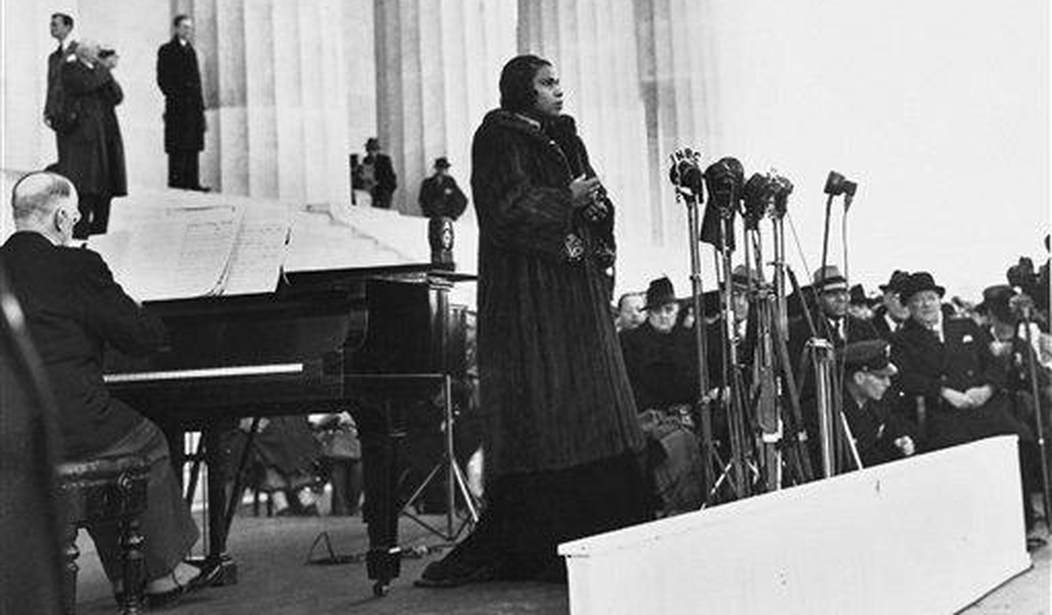America is like no other country in the world, and our national anthem is like no other, as I wrote in a 2016 essay:
For good reasons, we have the only national anthem that concludes with a question: “Does that star-spangled banner yet wave/ O’er the land of the free and the home of the brave?” Francis Scott Key’s work belongs to the sparse genre of great poems by awful poets (another is “The Battle Hymn of the Republic”). Great stress may concentrate the thoughts of a mediocre versifier, like coal into diamonds, and that is what the Battle of Fort McHenry did for Key in 1814. The first light of the dawn has come. The bombardment has ceased. The poet demands that the listener say whether he still can see the flag above the ramparts. It is a fearsome moment; the hearer has watched through the night, and in a few moments he will see in the first light of day whether the flag is still there. All the fears of the nightly vigil peak in those few moments of anticipation. More than that: The hopes and fears of generations hang upon what the listener will espy as day breaks, as the poet demands an answer.
And then the poet repeats the injunction “Say!” and reverses the question: The flag, the object kept in suspense, no longer is the object of the poem. The vigil through the nocturnal bombardment, the fleeting view of the national colors, the moment of truth in the gathering light of dawn—these are a metaphor for the national condition. Key addresses the second “Say!” to all generations of Americans: Are you still brave enough to be free? Like Israel, we chose to be what we are, and every generation must make that choice for itself.
Who sings the national anthem and how it is sung are matters of consequence for America’s soul. At Dwight Eisenhower’s second inauguration in 1957, the great black contralto Marian Anderson stood in front of the president and former wartime supreme commander to sing “The Star-Spangled Banner.”
Anderson was one of the first American musicians to conquer the classical music world in Europe, and also a symbol of the civil rights movement; refused the use of Constitution Hall for a Washington concert in 1939, Anderson sang instead on the steps of the Lincoln Memorial. A musician of towering ability, she was not asked to sing at the Metropolitan Opera until 1955. Eisenhower’s invitation (repeated by John F. Kennedy in 1961) was a belated recognition of a great American whose personal courage exemplified the challenge of the national anthem.
Marian Anderson’s classical perfection and precise diction would arouse resentment among today’s listeners. A singer who personified the civil rights struggle of the 1940s and 1950s today would be abhorred as elitist. No longer do Americans want to look up to things that uplift them, because they are better than they are; they want to identify with things that are like them. The narcissism of mediocrity levels popular culture.
One in ten million people could sing like Marian Anderson; lots of people can sing like Lady Gaga, who will sing (or perhaps lip-synch) the “Star-Spangled Banner” at Joe Biden’s inauguration. The erstwhile Ms. Germanotta is a “gay icon,” according to her Wikipedia entry, and checks a diversity box for the Democrats, but that is not her principal attraction. Marian Anderson was the soul of bravery and a freedom fighter. Her life embodied the content of our national anthem as aptly as her voice interpreted it, and called upon us to remain the land of the free and the home of the brave, to be worthy of the flag for which our forefathers bled. Ms. Germanotta entices to do what feels good, to sacrifice nothing and to expect everything. Her mediocrity itself is the source of her fascination.
Every generation of Americans must choose to be free and brave. The nations of the Old World are what they are, their origins shrouded in the mists of time, their habits ingrained and taken for granted. We are here because we or our ancestors chose to be Americans. The choice requires regular renewal. Marian Anderson sanctified our national anthem. Lady Gaga desecrates it.










Join the conversation as a VIP Member